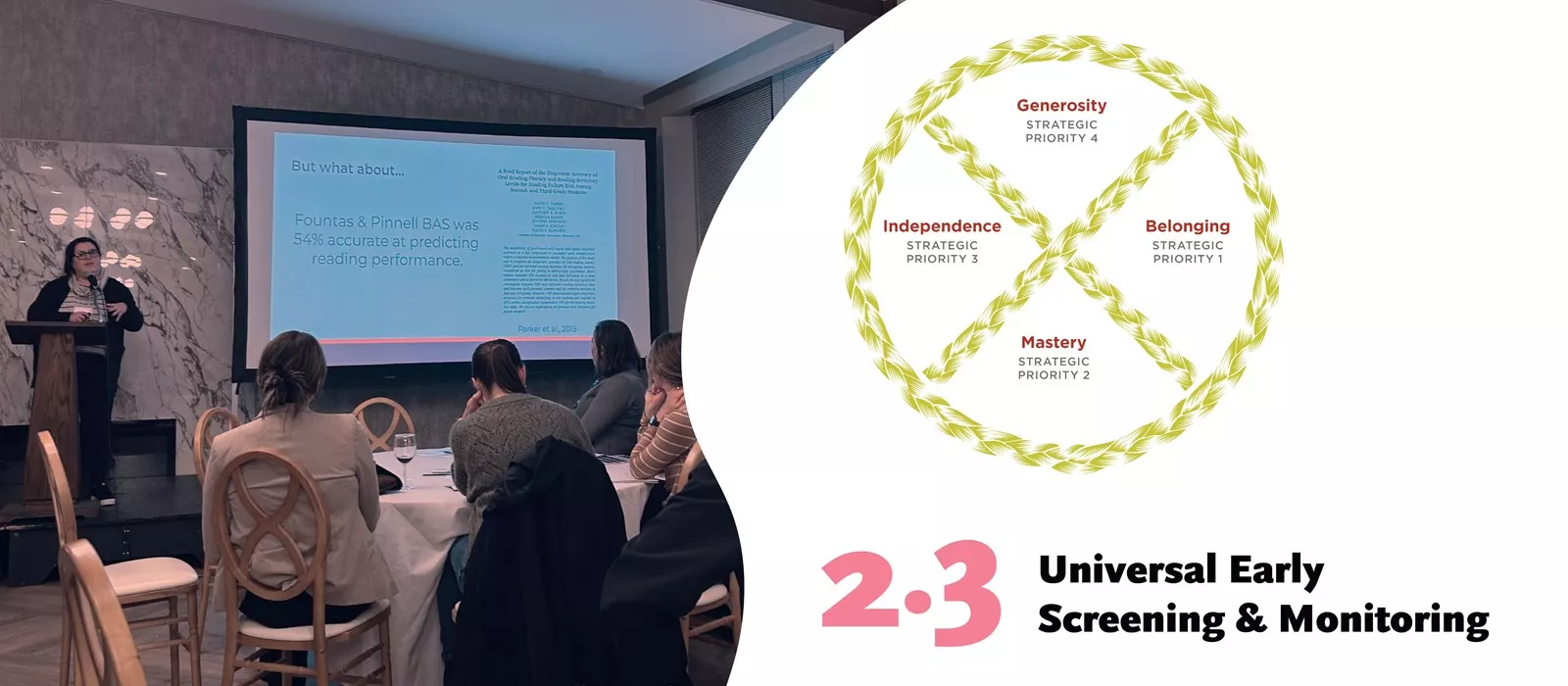Evidence-Based Literacy Screening and Instruction in LRSD
On Oct. 29, 2024, Dyslexia Canada held the Manitoba Universal Screening Symposium. The event included a keynote speaker from Toronto and representatives from three Manitoba school divisions, including the Louis Riel School Division (LRSD), who discussed their experiences with universal screening in literacy programs.
In 2022, the Ontario Human Rights Commission (OHRC) released its Right to Read report, which has driven changes nationwide. Based on well-established research, the report recommends universal screening in K-2 to identify reading challenges early. The Canadian (CPS) and Manitoba (MPS) Paediatric Societies, along with the Manitoba Association of School Psychologists (MASP) have recently released statements affirming their support for early screening, regular progress monitoring, and evidence-based instruction and intervention.
Since 2021, LRSD has been a leader in implementing early literacy screening and evidence-based practices within Manitoba and Canada. This work is very closely aligned with the recommendations from the OHRC, CPS and MPS, and remains a priority, as reflected in our Multi-Year Strategic Plan (MYSP) with these key actions:
2.1: Strengthen a learner-centred approach to tailor instruction to each student’s unique needs, interests, and abilities.
2.3: Implement universal early screening and progress monitoring to support proactive teaching and interventions.
Using valid and reliable tools, universal screening helps our staff better understand each child’s strengths and needs, guiding effective programming and teaching strategies. When combined with regular progress monitoring using reliable and valid tools and evidence-based teaching strategies, barriers to learning are removed, and learning results improve.
Since we began this work in 2021, we have:
- Implemented universal literacy screening for K-1 students using select subtests from the Comprehensive Test of Phonological Processing 2nd Edition (CTOPP-2).
- Adopted universal progress monitoring for K-8 in English (Grades 2-8 for French Immersion students) using the Dynamic Indicators of Basic Early Literacy Skills (DIBELS).
- Developed and implemented the Test des habiletés fondamentales en littératie (THaFoL) for progress monitoring in French for K-2 students in French Immersion.
- Established a robust professional development program for school teams.
- Created a literacy skills scope and sequence aligned with the curriculum.
- Developed a data collection system for staff to analyzse results to inform programming.
- Refined our systematic approach to supporting students with learning disabilities with assistive technology.
Data already shows growth in reading development of students. LRSD’s progress is the result of a close collaboration between teachers, clinicians, and external experts, including a research team from the University of Toronto.
Reading is a fundamental human right and a key to advancing equity. As we continue our learning journey, LRSD remains committed to making reading accessible to all students, including those with dyslexia, ensuring they can fully engage in learning and contribute to a more inclusive, just, and sustainable society.

